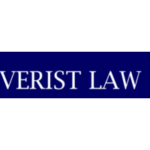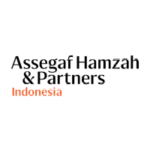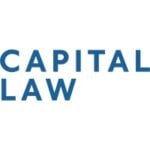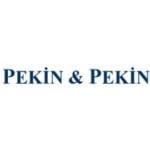-
Please briefly describe the regulatory framework and landscape of both equity and debt capital market in your jurisdiction, including the major regimes, regulators and authorities.
Equity Capital Market:
As Croatia is an EU member state, the equity capital markets are governed by both EU and Croatian regulations.
The stock exchange in Croatia is the Zagreb Stock Exchange (in Croatian: “Zagrebačka burza”, “ZSE”). The ZSE operates (i) the regulated market, which provides for sub-segments – Regular Market, Official Market and Prime Market and (ii) the Progress Market, operated as a multilateral trading facility (MTF) in Croatia and Slovenia, targeted at small and medium-sized enterprises’ (SMEs) investment plans.
The most important sets of rules at the European level are the Regulation (EU) 2017/1129 of the European Parliament and of the Council of 14 June 2017 on the prospectus to be published when securities are offered to the public or admitted to trading on a regulated market, and repealing Directive 2003/71/EC (“Prospectus Regulation”), the Regulation (EU) No 596/2014 of the European Parliament and of the Council of 16 April 2014 on market abuse (market abuse regulation) and repealing Directive 2003/6/EC of the European Parliament and of the Council and Commission Directives 2003/124/EC, 2003/125/EC and 2004/72/EC (“MAR”), each as amended and the Directive 2014/65/EU of the European Parliament and of the Council of 15 May 2014 on markets in financial instruments and amending Directive 2002/92/EC and Directive 2011/61/EU (“MiFID II”) and Regulation (EU) No 600/2014 of the European Parliament and of the Council of 15 May 2014 on markets in financial instruments and amending Regulation (EU) No 648/2012 (“MiFIR”), the delegated regulations based thereon and respective ESMA Guidelines. At the Croatian level those are the Croatian Capital Market Act (in Croatian: “Zakon o tržištu kapitala”, “ZTK”), the Croatian Companies Act (in Croatian: “Zakon o trgovačkim društvima”, “ZTD”), the Croatian Takeover Act (in Croatian: “Zakon o preuzimanju dioničkih društava”), as well as the respective rules and regulations of the ZSE. Special intention should be placed on the Regulation (EU) 2024/2809, Directive (EU) 2024/2810 and Directive (EU) 2024/2811 (referred to as the “EU Listing Act”) which have / shall introduce novelties in the existing legal regimes.
The Croatian Financial Services Supervisory Agency (in Croatian: “Hrvatska agencija za nadzor financijskih usluga”, “HANFA”) is the competent supervisory authority.
The regulatory regime governing the debt capital markets in Croatia closely mirrors that which applies to the equity capital markets outlined above. Nonetheless, there are several distinctions, both in terms of legal requirements and prevailing market practices.
-
Please briefly describe the common exemptions for securities offerings without prospectus and/or regulatory registration in your market.
In accordance with the Prospectus Regulation, various exemptions to the prospectus requirement apply to securities offerings, such as:
- addressed solely to qualified investors;
- addressed to fewer than 150 (legal or natural) persons (other than qualified investors) per member state;
- offers with a denomination per unit of at least EUR 100,000;
- offers addressed to investors who acquire securities for a total consideration of at least EUR 100,000 per investor, for each separate offer.
The examples of exemptions from the obligation to publish a prospectus for admission to trading on a regulated market are as follows:
- securities fungible with securities already admitted to trading on the same regulated market, provided that they represent, over a period of 12 months, less than 30 % of the number of securities already admitted to trading on the same regulated market;
- securities offered, allotted or to be allotted to existing or former directors or employees by their employer or an affiliated undertaking, provided that the said securities are of the same class as the securities already admitted to trading on the same regulated market and that a document is made available containing information on the number and nature of the securities and the reasons for and detail of the offer or allotment.
The ZTK envisages that public offers of securities with a total consideration of less than EUR 8,000,000 within EU (calculated over 12 months) are exempt from the obligation to publish a prospectus under Article 3(2) of the Prospectus Regulation. For such exempt public offers where the total consideration is between EUR 4,000,000 and EUR 8,000,000 (over 12 months), and the offer does not fall under the exemptions in Article 1(4) of the Prospectus Regulation, the issuer and/or offeror must prepare an information document in Croatian and make it available to investors/the public before the offer begins and at the latest at the start of the offer.
As a result of the EU Listing Act, a number of existing exemptions are expanded. For example, as of 5 June 2026, the threshold currently regulated by Article 3(2) of the Prospectus Regulation will generally apply and be increased from EUR 8,000,000 to EUR 12,000,000 with an option for member states to apply a threshold of EUR 5,000,000. It is yet to be seen whether Croatia will use this option and how the current exemption under ZTK will be regulated in the future.
-
Please describe the insider trading regulations and describe what a public company would generally do to prevent any violation of such regulations.
The insider trading regulation in Croatia are those of the MAR and respective implementing and delegated regulations. The MAR governs different matters, such as insider trading and exemptions thereto, unlawful disclosure of insider information, market sounding, market manipulation, ad hoc notifications or delay of ad hoc notifications (so-called self-exemption), insider lists, and managers’ dealings. Relevant (amending) provisions of the EU Listing Act should be duly taken into account as well.
In accordance with the MAR, HANFA has the power to take appropriate administrative sanctions, such as the imposition of fines and/or other administrative measures in relation to possible infringements.
Non-compliance with the market abuse rules can constitute a criminal offence under Croatian criminal law resulting in fines or imprisonment.
Common preventive measures are the keeping of insider lists, the adoption of different systems and policies (such as rules of conduct) aimed at preventing insider trading and ensuring that persons discharging managerial responsibilities duly comply with their duties, including on transactions’ reporting and closed periods during which they are forbidden to carry out any transaction that relate to the issuer’s financial instruments, etc.
-
What are the key remedies available to shareholders of public companies / debt securities holders in your market?
The key remedies available to shareholders against decisions of the company’s general assembly are claims challenging the validity of such decisions, either by requesting that relevant decision is declared null and void or by challenging a voidable decision if relevant conditions are met. In addition to general reasons for challenging validity of general assembly’s decisions, the law provides for specific additional reasons on challenging certain general assembly’s decisions such as decisions concerning appointment of supervisory board members, adoption of annual financial statements, distribution of profit or share capital increase. Depending on the circumstances, the shareholders may also request interim measures.
Of course, the shareholders may be entitled to challenge other decisions as well (e.g., decisions of the supervisory board if the reasons for nullity are met) and use other rights under the law to protect their interests, which often depend on the percentage of their shareholding interest (e.g., any shareholder has the right to request the court to appoint a supervisory board member if the number of board members is below the minimum number for decision-making, while only shareholders holding shares representing at least 10% of the share capital or at least EUR 1 million in the share capital have the right to ask a court to revoke a supervisory board member when there is a valid reason for revocation, etc.).
There are no particular remedies available to holders of debt securities beyond the standard contractual remedies and the general procedures provided by civil and insolvency law for enforcing their rights under the relevant instrument.
-
Please describe the expected outlook in fund raising activities (equity and debt) in your market in 2025.
Equity Capital Market:
The year 2025 commenced with notable activity on the ZSE, signalling renewed momentum in the Croatian capital markets. In January, a secondary listing of shares in Institut IGH d.d. was successfully completed, providing existing shareholders with enhanced liquidity and visibility.
Moreover, ING-GRAD d.d. launched an IPO, which was met with strong investor interest and is widely regarded as a success. The positive reception of the ING-GRAD d.d.’s IPO has contributed to a sense of optimism in the market, with expectations that further IPOs may follow in the course of 2025.
In this context, ŽITO d.d. has already announced its intention to proceed with an IPO, and HANFA has approved the prospectus, paving the way for the offering to take place. Market participants are also reporting that several other companies are actively considering raising capital through IPOs, reflecting a broader trend towards the use of public equity markets as a source of financing.
This uptick in primary market activity is a positive development for the Croatian capital markets, which have historically been characterised by relatively low turnover and a limited number of new listings.
Debt Capital Market:
Croatia’s debt capital market has seen a notable uptick in 2025, driven by several high-profile corporate bond issuances on the Zagreb Stock Exchange.
Key transactions include Atlantic Grupa d.d.’s €80 million bond for refinancing and operational needs, and BOSQAR d.d.’s €110 million sustainability-linked bond, which ties financial terms to environmental performance targets. Both were well-received by a broad base of retail and institutional investors and promptly listed, improving liquidity and market visibility.
SPAN d.d. also received HANFA approval for the public offering and listing of its €25 million sustainability-linked bond, reinforcing the shift toward ESG-linked financing among Croatian corporates.
The “minibond” segment targeting SMEs continues to gain traction, with ten known issues since late 2024. This development is broadening access to capital and contributing to a more diverse and active market.
Overall, this wave of new issuance marks a positive trend for the Croatian DCM, with further deals expected in the coming months.
-
What are the essential requirements for listing a company in the main stock exchange(s) in your market? Please describe the simplified regime (if any) for company seeking a dual-listing in your market.
Some of the general criteria for admission to trading of shares on the regulated market are:
- financial instruments must be issued in accordance with the EU and Croatian legislation;
- financial instruments may be admitted to trading on the regulated market if capable of being traded in a fair, orderly and efficient manner;
- the issuer must comply with the obligation to publish the prospectus and/or other information (if such obligation in the matter at hand exists);
- the financial instruments must be issued in accordance with the regulations that apply to them and must be freely transferable;
- efficient transaction settlement must be provided.
Some of the key criteria for admission of shares to a specific segment of the regulated market are as follows:
- For the Regular Market, as a general rule, at least 15 % of the shares need to be distributed to the public,
- For the Official Market, as a general rule, at least 25 % of shares need to be distributed to at least 30 shareholders (as an exception, orderly market functioning is considered not to be compromised if at least 10% of the shares are distributed among at least 50 shareholders), and the anticipated market capitalization must be at least EUR 1,000,000,
- For the Prime Market, as a general rule, free float must be at least 35%, the issuer must have at least 1000 shareholders, and anticipated market capitalization must be at least EUR 65,000,000.
The EU Listing Act has introduced some relief in the area of admission requirements: the minimum requirement for free float has been reduced from 25% to 10%, allowing the member states to require certain additional requirements for admission. The relevant directive is yet to be transposed into the Croatian legal system (the deadline is 5 June 2026).
In case of dual listing, the issuer must meet the admission requirements of both the ZSE and the foreign stock exchange. Accordingly, the preparation of the transaction and marketing documents must be carried out in compliance with the legal requirements of both jurisdictions.
-
Are weighted voting rights in listed companies allowed in your market? What special rights are allowed to be reserved (if any) to certain shareholders after a company goes public?
A listed company in Croatia may issue ordinary shares (i.e., shares that give to their holder the right to vote, receive dividend and receive part of the liquidation proceeds), and preferential shares (i.e., shares that give their holder preferential rights). Common examples of preferential rights are right to receive dividend in the upfront determined amount, priority in receiving dividend or liquidation proceeds. Other special rights are possible too, provided they are permitted under the law. The preferential shares may be issued as shares with or without voting power. Croatian law does not permit that shares which correspond to the same amount of share capital give different voting rights.
The EU Listing Act has introduced rules on multiple-vote share structures in companies that seek admission to trading of their shares on a multilateral trading facility. However, relevant directive is yet to be implemented into the Croatian legal system (the deadline is 5 December 2026).
-
Is listing of SPAC allowed in your market? If so, please briefly describe the relevant regulations for SPAC listing.
The Croatian law does not specifically regulate SPAC listing. Public notices on SPACs are limited (e.g., HANFA has published ESMA’s statement on prospectus disclosure and investor protection considerations in relation to SPACs), which is why any planned business action including SPACs in Croatia should be thoroughly analysed and previously discussed with the competent authorities.
-
Please describe the potential prospectus liabilities in your market.
The liability for damages arising from inaccurate or incomplete information in a prospectus which is important for the evaluation of the securities is imposed on the issuer (or offeror), any person who has accepted responsibility for the accuracy and completeness of information in the prospectus or any part of it, and any guarantor in respect of the sections relating to the guarantee. These parties are jointly and severally liable, meaning an investor may claim the full amount of damages from any one of them. The prospectus must clearly identify all such responsible persons by name and function (or company name and registered office for legal entities), and include a declaration by them that, to their knowledge, the information contained in the prospectus is in accordance with the facts and that the prospectus makes no omission likely to affect its import. The issuer and its management board members are usually named in the prospectus as the persons responsible for its content. In contrast, arrangers, agents, and legal advisors are typically not liable.
No civil liability shall attach to any person solely on the basis of the prospectus summary (or translation thereof) unless it is misleading, inaccurate or inconsistent, when read together with the other parts of the prospectus; or it does not provide, when read together with the other parts of the prospectus, key information in order to aid investors when considering whether to invest in the securities.
An investor may claim damages if the acquisition of the securities (i.e., relevant legal act) has been made within 6 months after the completion of the IPO or after the listing, as applicable. The statute of limitation period is one year as of knowledge about incorrect or incomplete information in the prospectus and, in any case, three years as of publication of the prospectus.
-
Please describe the key minority shareholder protection mechanisms in your market.
Some of the key rights of the shareholders holding at least 5% of share capital, which apply if certain conditions are met, are as follows:
- to challenge the decision on the use of profits;
- to propose to the court to appoint special representatives of the company to file a damage claim on behalf of the company against the company’s founders, members of the management board, persons who used their influence in the company to harm the company, etc;
- to request that a meeting of the general assembly is convened and to convene the meeting;
- to request that items are put on the agenda of the general assembly’s meeting;
- to request the court to appoint auditor for auditing certain company’s actions; etc.
Some of the key rights of the shareholders holding at least 10% of share capital, which apply if certain conditions are met, are as follows:
- to request the court to recall a member of the supervisory board if there is an important reason for that;
- to request the company to file a damage claim against the company’s founders, members of the management board, persons who used their influence in the company to harm the company, etc.
-
What are the common types of transactions involving public companies that would require regulatory scrutiny and/or disclosure?
The most common types are initial and secondary public offerings, mandatory takeover bids and voluntary takeover bids.
Depending on the deal (especially type of concentration and relevant turnover thresholds), merger clearance may be required. Depending on the type of business sector in which the public company operates, different other approvals from regulators / relevant authorities may be required in M&A transactions (e.g., banking, energy, investment, leasing and insurance sectors).
-
Please describe the scope of related parties and introduce any special regulatory approval and disclosure mechanism in place for related parties’ transactions.
To determine a related party, international accounting standards as determined by the Commission Regulation (EC) No 1126/2008 of 3 November 2008 adopting certain international accounting standards in accordance with the Regulation (EC) No 1606/2002 of the European Parliament and of the Council are to be used.
The supervisory board of a company whose shares are admitted to trading on a regulated market, or a special committee must give prior approval for transactions the company undertakes with related parties if the value of that transaction, either individually or together with other transactions undertaken with the related party during the current financial year prior to undertaking that transaction, exceeds 1.5% of the total of fixed and current assets as determined in the latest annual financial statements. The decision of the general assembly may override the decision of the supervisory board. Rules on conflict of interest apply to approval decisions (e.g., if a supervisory board member or a shareholder is a related party in the relevant transaction, their voting right is excluded in that case).
A related party transaction, for which the mentioned approval is needed, must be made public without delay. If the transaction is insider law relevant and there is an ad-hoc notification obligation, the related party transaction information must be included in the ad-hoc notification pursuant to MAR – in this case, a separate publication pursuant to ZTD is not required.
The management board of the company must prepare an annual report on transactions with related parties.
-
What are the key continuing obligations of a substantial shareholder and controlling shareholder of a listed company?
The key continuing obligations of a substantial or controlling shareholder of a listed Croatian company include the following:
- loyalty duty towards the company and other shareholders;
- obligation to deliver to the company and HANFA the voting rights notification when thresholds are reached, exceeded or fallen below (i.e. 75%, 50%, 30%, 25%, 20%, 15%, 10%, 5%);
- obligation to make a mandatory public takeover offer if the relevant threshold is met; and
- obligation to comply with the obligations under MAR Regulation.
-
What corporate actions or transactions require shareholders’ approval?
The general assembly of the company decides on matters expressly determined by law and the company’s articles of association, especially about the following:
- the election and removal of members of the supervisory board or the executive board, unless they are being appointed to that board;
- the use of profits;
- the remuneration policy and reports on remuneration for members of the management board and supervisory board, or executive directors and members of the executive board;
- granting discharge to members of the management board and supervisory board, or the executive board;
- the appointment of the company’s auditor;
- amendments to the articles of association;
- the increase and decrease of the company’s share capital;
- the appointment of an auditor to examine the actions undertaken during the incorporation of the company or the management of the company’s affairs, and determining its remuneration,
- the admission of the company’s shares to trading on a regulated market and the withdrawal of shares from such admission,
- the dissolution of the company.
The general assembly may decide on matters concerning the management of the company only if requested to do so by the management board or the executive directors of the company.
-
Under what circumstances a mandatory tender offer would be triggered? Is there any exemption commonly relied upon?
The mandatory takeover bid would be triggered once a party (together with parties acting in concert) obtains a “controlling threshold” in a target company, i.e. directly or indirectly holds shares granting over 25% of the voting rights of the target.
The exemptions commonly relied upon are:
- certain types of “passive acquisitions”, including acquisitions of shares by inheritance and by division of marital assets;
- the acquisition of a controlling interest is exempted if no change of control has occurred (such as intra-group transfers, or transfers through reorganisation of a concern);
- the sale or transfer of shares by a credit institution acting as a fiduciary creditor are exempted, provided that the sale or transfer occurs within six months after the acquisition;
- a person that, through acquisition of shares, acquires a percentage of shares with voting rights equal to, or smaller than the percentage that another person holds in the target company;
- acquisitions of shares in cases of the target company undergoing a process of financial recovery.
-
Are public companies required to engage any independent directors? What are the specific requirements for a director to be considered as “independent”?
No, there are no such requirements for directors/management board of the company.
The Corporate Governance Code of the ZSE envisages independence requirements for supervisory board members, such as that the majority of the supervisory board members must be independent (including the president and vice-president), as well as the majority of the supervisory board committees. The code also includes a detailed list of the independence criteria.
-
What financial statements are required for a public equity offering? When do financial statements go stale? Under what accounting standards do the financial statements have to be prepared?
In general, audited historical financial information covering the latest three financial years (or such shorter period as the issuer has been in operation) and the audit report in respect of each year. If the issuer prepares both stand-alone and consolidated financial statements, at least the consolidated financial statements in the registration document need to be included.
The balance sheet date of the last year of audited financial information may not be older than one of the following: (a) 18 months from the date of the registration document if the issuer includes audited interim financial statements in the registration document; (b) 16 months from the date of the registration document if the issuer includes unaudited interim financial statements in the registration document.
If the issuer has published quarterly or half-yearly financial information since the date of its last audited financial statements, these must be included in the registration document. If the quarterly or half-yearly financial information has been audited or reviewed, the audit or review report must also be included. If the quarterly or half-yearly financial information is not audited or has not been reviewed, this needs to be stated. If the registration document is dated more than nine months after the date of the last audited financial statements, it must contain interim financial information, which may be unaudited (in which case that fact must be stated) covering at least the first six months of the financial year.
The financial information must generally be prepared in accordance with IFRS. Third country issuers may use their national accounting standards equivalent to Regulation (EC) No 1606/2002. If such third country’s national accounting standards are not equivalent to Regulation (EC) No 1606/2002, the financial statements shall be restated in compliance with that regulation.
-
Please describe the key environmental, social, and governance (ESG) and sustainability requirements in your market. What are the key recent changes or potential changes?
When it comes to sustainability reporting, Croatia was among the first EU member states to adopt the Corporate Sustainability Reporting Directive (CSRD). As of July 2024, Croatia integrated the CSRD into its national legal framework through amendments to the Accounting Act, Audit Act, and Capital Markets Act. This implementation mandates comprehensive sustainability reporting for companies that meet specific criteria. The first reports under the new legislation were published at the beginning of 2024.
In addition, both the EU Taxonomy Regulation (applicable since 2021) and the Sustainable Finance Disclosure Regulation (SFDR) (since 2019) are directly applicable in Croatia.
HANFA adopted the Guidelines for the Preparation and Disclosure of ESG Relevant Issuer Information back in 2021, intended for issuers on the regulated market in Croatia subject to non-financial disclosure requirements pursuant to the Croatian Accounting Act, but also for those who decide to disclose non-financial statements under the same act on a voluntary basis.
Most recently, in November 2024, the Croatian Parliament adopted amendments to the Companies Act to transpose Directive (EU) 2022/2381 on improving gender balance among directors of listed companies into national legislation. These amendments entered into force on 5 December 2024.
Regarding enforcement of the EU Deforestation Regulation (EUDR), which will become applicable as of 30 December 2025, and its designated competent authorities for Croatia, the coordination authority will be the Ministry of Environmental Protection and Green Transition in cooperation with the Ministry of Economy and the Ministry of Agriculture, Forestry and Fisheries.
Looking ahead, potential regulatory changes primarily relate to the transposition of the EU Pay Transparency Directive and the Corporate Sustainability Due Diligence Directive (CSDDD). However, the timeline and implementation of the CSDDD remain uncertain due to recent Omnibus amendments and the possibility of the directive being significantly revised or repealed.
With respect to the issues that require attention, HANFA has highlighted the importance of prevention of greenwashing practices as such practices can mislead consumers, investors, or other market participants. HANFA further elaborated that it already, as part of its regular activities (such as approving prospectuses for issuances, licensing investment funds, and monitoring fund operations), is able to monitor whether such deceptive practices are being used in reality.
-
What are the typical offering structures for issuing debt securities in your jurisdiction? Does the holding company issue debt securities directly or indirectly (by setting up a SPV)? What are the main purposes for issuing debt securities indirectly?
In Croatia, issuers typically issue debt securities directly, including holding companies. The use of SPVs is uncommon for domestic offerings. When SPVs are used (mainly in cross-border or structured transactions), the main purposes are to achieve bankruptcy remoteness, ring-fence risks, or for regulatory, tax, or rating reasons.
-
Are trust structures adopted for issuing debt securities in your jurisdiction? What are the typical trustee’s duties and obligations under the trust structure after the offering?
No, Croatian law does not recognise the concept of a “trust” as it exists under English law, and trust structures are not used in the domestic issuances of debt securities. Croatian law also does not differentiate between legal and beneficial ownership (i.e., only legal ownership is recognized).
-
What are the typical credit enhancement measure (guarantee, letter of credit or keep-well deed) for issuing debt securities? Please describe the factors when considering which credit enhancement structure to adopt.
Credit enhancement structures are generally not required for debt issuances by entities with an investment grade rating (or those perceived as having similar credit quality even without a formal rating), as their standalone creditworthiness is considered sufficient to attract investors.
For issuers without such a rating or standing it is standard market practice to require guarantees from the principal operating subsidiaries. These guarantees may be limited in both scope and/or amount.
-
What are the typical restrictive covenants in the debt securities’ terms and conditions, if any, and the purposes of such restrictive covenants? What are the future development trends of such restrictive covenants in your jurisdiction?
Restrictive covenants in Croatian debt securities are tailored to the issuer’s credit profile and the nature of the instrument. Investment grade issuers typically face minimal restrictions, while high yield and sustainability-linked bonds include a range of covenants designed to protect investors. The most common ones are: change of control, negative pledge, restrictions on indebtedness, guarantees, disposals or distribution. The covenants that are included in bond issues tend to be less extensive than those in term loans. Lower levels of covenant protection in bonds is also conventionally associated with potential renegotiation difficulties that could arise with respect to publicly traded instruments held by a large, dispersed group of investors.
-
In general, who is responsible for any profit/income/withholding taxes related to the payment of debt securities’ interests in your jurisdiction?
Interest payments made to non-resident individuals are usually considered the non-resident’s personal income sourced to Croatia (income from capital) and are taxed at a personal income tax rate of 12% (unless the applicable Double Tax Treaty prescribes otherwise). The tax is withheld and paid at the source.
Domestic interest payments between legal entities are not subject to withholding tax but are taxed according to the profit-based taxation within the Croatian corporate profit tax framework.
Domestic interest payments to individuals are taxed the same way as cross-border payments explained above, at a personal income tax rate of 12%, withheld by the payor of interest.
-
What are the main listing requirements for listing debt securities in your jurisdiction? What are the continuing obligations of the issuer after the listing?
To have debt securities admitted to trading on a regulated market in Croatia, a prospectus compliant with the Prospectus Regulation must be prepared, approved by the HANFA, and published (unless a relevant exemption applies). Where a base prospectus is used (e.g. for a programme), it must be supplemented if new material information arises concerning the issuer or the securities.
Issuers with debt securities listed on a regulated market in Croatia are subject to ongoing obligations primarily set out in the ZTK and the ZSE Rules. They must in particular prepare and publish annual and semi-annual financial reports.
They must also comply with ongoing disclosure obligations under the MAR, including the prompt disclosure of inside information and other relevant events.
Croatia: Capital Markets
This country-specific Q&A provides an overview of Capital Markets laws and regulations applicable in Croatia.
-
Please briefly describe the regulatory framework and landscape of both equity and debt capital market in your jurisdiction, including the major regimes, regulators and authorities.
-
Please briefly describe the common exemptions for securities offerings without prospectus and/or regulatory registration in your market.
-
Please describe the insider trading regulations and describe what a public company would generally do to prevent any violation of such regulations.
-
What are the key remedies available to shareholders of public companies / debt securities holders in your market?
-
Please describe the expected outlook in fund raising activities (equity and debt) in your market in 2025.
-
What are the essential requirements for listing a company in the main stock exchange(s) in your market? Please describe the simplified regime (if any) for company seeking a dual-listing in your market.
-
Are weighted voting rights in listed companies allowed in your market? What special rights are allowed to be reserved (if any) to certain shareholders after a company goes public?
-
Is listing of SPAC allowed in your market? If so, please briefly describe the relevant regulations for SPAC listing.
-
Please describe the potential prospectus liabilities in your market.
-
Please describe the key minority shareholder protection mechanisms in your market.
-
What are the common types of transactions involving public companies that would require regulatory scrutiny and/or disclosure?
-
Please describe the scope of related parties and introduce any special regulatory approval and disclosure mechanism in place for related parties’ transactions.
-
What are the key continuing obligations of a substantial shareholder and controlling shareholder of a listed company?
-
What corporate actions or transactions require shareholders’ approval?
-
Under what circumstances a mandatory tender offer would be triggered? Is there any exemption commonly relied upon?
-
Are public companies required to engage any independent directors? What are the specific requirements for a director to be considered as “independent”?
-
What financial statements are required for a public equity offering? When do financial statements go stale? Under what accounting standards do the financial statements have to be prepared?
-
Please describe the key environmental, social, and governance (ESG) and sustainability requirements in your market. What are the key recent changes or potential changes?
-
What are the typical offering structures for issuing debt securities in your jurisdiction? Does the holding company issue debt securities directly or indirectly (by setting up a SPV)? What are the main purposes for issuing debt securities indirectly?
-
Are trust structures adopted for issuing debt securities in your jurisdiction? What are the typical trustee’s duties and obligations under the trust structure after the offering?
-
What are the typical credit enhancement measure (guarantee, letter of credit or keep-well deed) for issuing debt securities? Please describe the factors when considering which credit enhancement structure to adopt.
-
What are the typical restrictive covenants in the debt securities’ terms and conditions, if any, and the purposes of such restrictive covenants? What are the future development trends of such restrictive covenants in your jurisdiction?
-
In general, who is responsible for any profit/income/withholding taxes related to the payment of debt securities’ interests in your jurisdiction?
-
What are the main listing requirements for listing debt securities in your jurisdiction? What are the continuing obligations of the issuer after the listing?

















